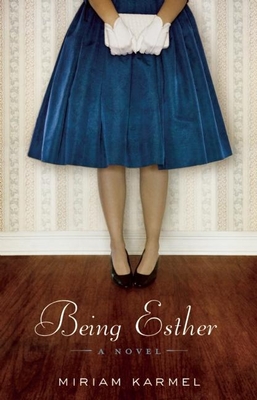"Growing old is one of the most surprising
things that has happened to her. She hadn't given it any thought. Then
one day, she was eighty-five. Not just old, but an object of derision,
pity. Is there any use explaining that she is still herself—albeit a
slower, achier, creakier version of the original?"
—from Being Esther
Being Esther intimately explores the interior consciousness of an elderly Jewish woman who lives as much in the past as in the present.
Whereas the past includes pleasant memories of family, love and lust, the happy confines of marriage, and the rare occasions to break those confines—like taking a part-time job as a bookseller at Kroch's & Brentano's—the present includes crossing out the names of the deceased in a phone book, fending off attempts by her daughter to move into assisted living, daily check-ins with a neighbor, and the occasional outing. Not prone to self-pity, Esther is at moments lucid and then suddenly lost in a world which has disappeared along with many who had inhabited it.
Miriam Karmel's fiction debut brings understanding and tremendous empathy to the character of Esther Lustig, a woman who readers will not soon forget.
Jackie says:
"This delightful book is about Esther, age 85, and her last few months before her death. She's as real as any character I've ever fallen in love with. She has some regrets, some joys, and a whole lot of opinions. She's a normal woman who had a normal life, a normal marriage, a normal motherhood, but there is a spark to her that just won't fade. She's the same person she's always been, as she sees it, though admittedly older, creakier, slower. A simple life is not a boring life—not by any means. Thank you, Esther, for reminding me of that! What a delightful book, even if it did end up making me cry."
—from Being Esther
Being Esther intimately explores the interior consciousness of an elderly Jewish woman who lives as much in the past as in the present.
Whereas the past includes pleasant memories of family, love and lust, the happy confines of marriage, and the rare occasions to break those confines—like taking a part-time job as a bookseller at Kroch's & Brentano's—the present includes crossing out the names of the deceased in a phone book, fending off attempts by her daughter to move into assisted living, daily check-ins with a neighbor, and the occasional outing. Not prone to self-pity, Esther is at moments lucid and then suddenly lost in a world which has disappeared along with many who had inhabited it.
Miriam Karmel's fiction debut brings understanding and tremendous empathy to the character of Esther Lustig, a woman who readers will not soon forget.
Jackie says:
"This delightful book is about Esther, age 85, and her last few months before her death. She's as real as any character I've ever fallen in love with. She has some regrets, some joys, and a whole lot of opinions. She's a normal woman who had a normal life, a normal marriage, a normal motherhood, but there is a spark to her that just won't fade. She's the same person she's always been, as she sees it, though admittedly older, creakier, slower. A simple life is not a boring life—not by any means. Thank you, Esther, for reminding me of that! What a delightful book, even if it did end up making me cry."


No comments:
Post a Comment